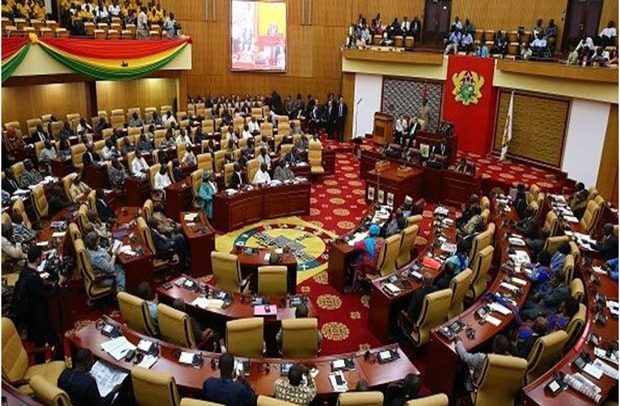MEMBERS OF Parliament (MPs) have passed a law rationalising tax exemptions in the country in order to raise revenue, after complaints that the current exemptions regime lacks sanctions for abuse, transparency and accountability.
The new legislation is seeking to provide for consolidation of scattered laws on exemptions and an exemptions regime that offers variation of limitation of the scope; and set clear eligibility criteria for exemptions, while providing for the administration of exemptions, monitoring, evaluation, reporting and enforcement of exemptions.
Tax exemptions in Ghana are embedded in statutory legislation and exemptions approved by resolutions by the Parliament of Ghana.
These include income tax exemptions, tax holidays, rebates, and concessions, Import exemptions, value added tax reliefs, and excise tax.
In the last ten years, tax exemptions namely import duty, import value added tax, import national health insurance levy, import Ghana education trust fund, export-import levy, special import levy and domestic value added tax in the economy have grown even though there has been a remarkable improvement to curtail the growth.
The Minister of Finance, Ken Ofori-Atta, in a memorandum accompanying the bill to Parliament, said a total of GH¢14.03 billion tax exemptions were granted between 2012 and 2020.
The figure does not include exemptions from the payment of corporate and individual income taxes, concessions on tax rates, petroleum tax reliefs and customs tax exemptions enjoyed by diplomatic missions.
The total government expenditure is expected to increase by 25.5% from GH¢ 107.8 billion in 2021 to GH¢135.6 billion in 2022, while the budget deficit is expected to drop slightly from GH¢37.6 billion in 2021 to GH¢35.1 billion, per the rationalisation of the laws.
Mandatory spending consisting of compensation of employees and interest payments will account for about 54% of the total projected spending, and it would also constitute about 73% of Government’s budgeted revenue (GH¢100.6 billion) for 2022.
The rationale for granting these exemptions include attracting foreign direct investment, alleviating the tax burden on the vulnerable in society, encouraging business start-ups, attracting investment into specified sectors or locations and supporting the development agenda of the Government.
However, it has been said that exemptions distort fair competition among businesses in the same industry where private projects are granted exemptions to improve their profitability or viability, which are not available to other players of the same industry.
Additionally, where exemptions are granted on items that are available locally, unfair competition is created for local manufacturers of those goods.
Bill Structure
The Exemptions Bill, 2021is structured broadly into eight parts and with 34 specific sections. The eight broad parts are preliminary provisions, general provisions, ministries, departments and agencies, privileged persons, private businesses, development partner projects, security transactions, administrative fees and transnational levies, and miscellaneous provisions.
Clause 1 states the object of the Bill, whilst Clause 2 states the application of the Bill and resolves the conflict between the Bill and other exemptions-related legislation by providing that the Bill will prevail in case of any conflict or inconsistency with other exemptions-related legislation.
Clause 3 defines an exemption for the purposes of the Bill. Clauses 4 and 5 provide for general responsibilities and the responsibility of the Minister responsible for Finance.
Clause 6 deals with negotiation and approval of exemption and prohibits persons from negotiating or entering into an agreement to grant an exemption except with the prior written approval of the Minister.
By Ernest Kofi Adu, Parliament House


